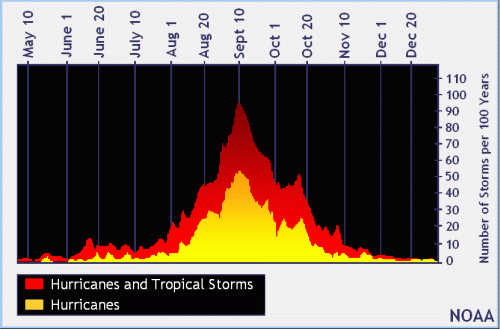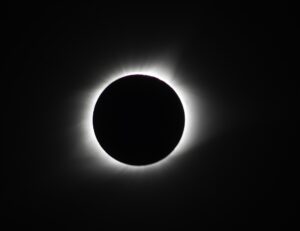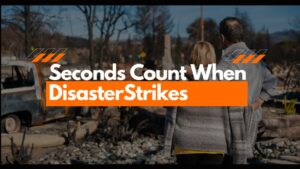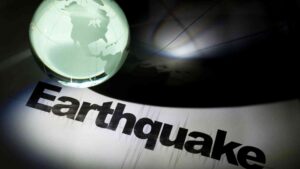The selectors of the 2021 hurricane names appear to have been binging way too much Disney while making their lists. How did we end up with a Disney-themed hurricane list? The hurricane naming process has changed a lot over the years. We’ll explore how it started and how we arrived at the system we have now.
What Disney Characters Made the List?
Ana, Elsa, and Wanda made the list this year for Atlantic tropical storms. Olaf and even Waldo both snuck into the bottom half of the Eastern North Pacific Storms list, too. Thankfully, Wanda’s counterpart Agnes was already retired all the way back in 1972.
Before you start writing me hate mail, yes, I know Anna has two N’s in it. Don’t look at me. I’m not the one who comes up with the names or the spelling! That responsibility belongs to someone else. If you just relax for a second and keep reading, you’ll know who picks the storm names as well!
Who Comes Up with These Lists Anyway?
Well okay, it’s not actually the WHO, it’s the WMO! The World Meteorological Organization! They have been responsible for providing the Atlantic storm names since 1978. The National Hurricane Center had been naming the storms since 1953, before transferring the task to the WMO.
Why a Name?
When storms formed in the ocean, names were much easier to relay than latitude and longitude coordinates. They also cleared up confusion when two storms were in the same vicinity.
For a while, storms were named after the year they hit, a holiday they were near, or Greek mythology.
When Did the Name-Calling Begin?
Clement Wragge was an Australian meteorologist who began using names to describe hurricanes in the late 1800s. He later grew fond of naming storms after local politicians. This tactic allowed him to get away with saying the politician/storm was “causing great distress” or “wandering aimlessly about the Pacific” on public forecasts.
According to History, the military began using names for storms during World War II. They often named these after their wives or girlfriends. The National Hurricane Center cemented this practice in 1953 when they began using female names to describe Atlantic tropical storms.
Storms were named exclusively after women until the end of 1978. During the feminist movement of the 1960s and 70s, Roxcy Bolton demanded that the naming system needed to be reworked.
Although she managed to put an end to single-gender storms, her recommendation to name the storms after senators because they “delight in having things named after them” ultimately failed.
Selecting the Names
The World Meteorological Organization has six name lists it repeats every 7 years.
The current list has the names for all hurricanes/tropical cyclones from 2020 to 2025.
Before recycling the set of names, the WMO meets to remove any named storms that were so deadly or costly that they would cause excessive grief and trauma if the names were reused.
The Names
Without further ado, here are the names for the 2021 storm season.
2021 Atlantic Tropical Storms
2021 Eastern North Pacific Storms
Ana
Bill
Claudette
Danny
Elsa
Fred
Grace
Henri
Ida
Julian
Kate
Larry
Mindy
Nicholas
Odette
Peter
Rose
Sam
Teres
Victor
Wanda
Andres
Blanca
Carlos
Dolores
Enrique
Felicia
Guillermo
Hilda
Ignacio
Jimena
Kevin
Linda
Marty
Nora
Olaf
Pamela
Rick
Sandra
Terry
Vivian
Waldo
Xina
York
Zelda
Notice that though it is in alphabetical order, not every letter is used. The Atlantic list contains 21 names and the Eastern North Pacific has 24 names instead of the full 26 letters of the alphabet.
SQUIRREL!
Did you know the English alphabet used to have 27 letters? Yup, that’s right, there was an extra letter after Z all the way until the 17th century!
It’s still on your keyboard today! Meet “&” the almost forgotten 27th letter.
Sorry, I’m back…
When is Hurricane Season?
Hurricane season traditionally runs from June 1st to November 30th. The peak of the season is from mid-August to late October.

However, the National Weather Service is considering moving the start of hurricane season up to May 15th.
"In order to provide more frequent information on the potential for tropical cyclone formation as the official June 1 start of the Atlantic hurricane season approaches, the National Hurricane Center will begin routine issuance of the Atlantic Tropical Weather Outlook" "Given recent increased tropical cyclone activity in the Atlantic basin in late May, routine issuance of the Atlantic TWO starting on May 15 offers a service improvement over unscheduled Special TWOs that are issued to discuss the possibility of tropical cyclone formation prior to the official start of hurricane season on June 1." -National Hurricane Center
Learned Enough Yet?
While I was going through a $200 blog course called How to Earn Money from Blogging, I came across an article called How to Write a Great Blog Post for Dummies. Their top suggestion was that you have great data or statistics to engage your readers.
So behold!
DATA!
So What Does This Mean?
Well, statistically, we have a much better chance of Ida causing an excessive amount of damage compared to either Elsa or Wanda.
Atlantic storms rarely exceed 25 storms a year. Historically, they have trended below 15 named storms a year, thus resulting in the heavy skew of retired names seen before the letter P.
2020
Ah yes, that unprecedented historical dumpster fire that most of us would like to forget. The pandemic was not the only thing unprecedented about that infamous year, though. The 2020 hurricane season broke many records!
2020 had 30 named North Atlantic storms! This beat the previous record set in 2005 by 2 storms.
12 of the storms made landfall in the United States. Louisiana was pounded repeatedly by them and took a new record with 5 of them making landfall within the state!
This year also became only the second year we needed to tap into the reserve storm names list from the Greek alphabet.
On November 16th Hurricane Iota reached category 5 strength and became the strongest storm to happen so late in a hurricane season.
The 2020 hurricane season also fundamentally changed the way WMO names the storms. The WMO decided to completely retire the Greek alphabet! That will really mess up my retired names graph… You can find all the reasons they had for retiring the alphabet system in their statement here.
The Coming Storms
After a year like 2020 having Ana, Elsa, & Wanda all on the same list doesn’t seem so crazy. Despite the huge leap in forecasting predictions and models, our future still remains unpredictable. While you can never be ready for everything that comes your way, taking just a few steps to prepare can greatly change your situation should troubles arise. To be better equipped for severe storms check out our severe weather post.
Whatever the future holds, stay Red Sky Ready!
Sign up for our newsletter
- Disaster Relief Needs X (You should use it too)
- Faith in Action: Responding to Trump’s Reduction in Humanitarian Aid
- How to Help Someone Who is on Fire
- How To Get Help When 9-1-1 Is Down
- Does a Solar Eclipse Really Warrant a State of Emergency?
- The Coming Digital Apocalypse?
- Disaster Survival: Do These 3 Things Within 60 Seconds
- 5 Disaster Relief Tips for a Major Earthquake Response
- Can We Shoot the Chinese Balloon Down?
- Incident Management Team: Tips for a Successful Deployment
- TC001 Best New Thermal Camera? Review for TOPDON TCView
- 5 Ways To Stop Overpaying For Healthcare















OK this is amazing. My husband and I laughed our heads off at the names they have for this year’s storms. Let’s just say “Kevin’s Famous Chili” was mentioned…?